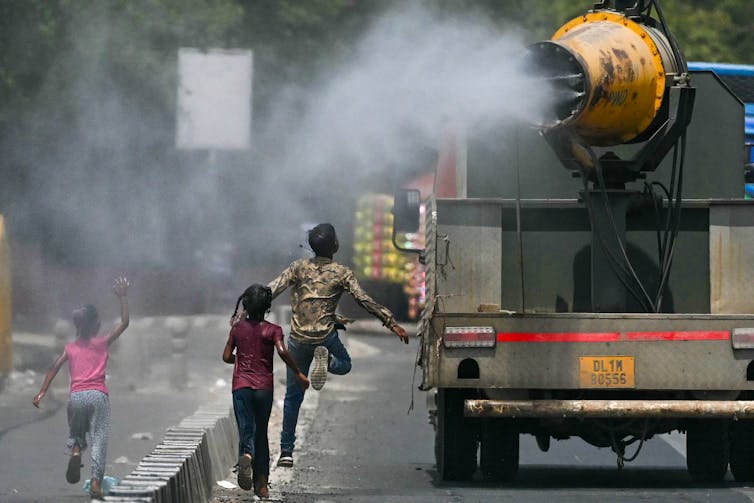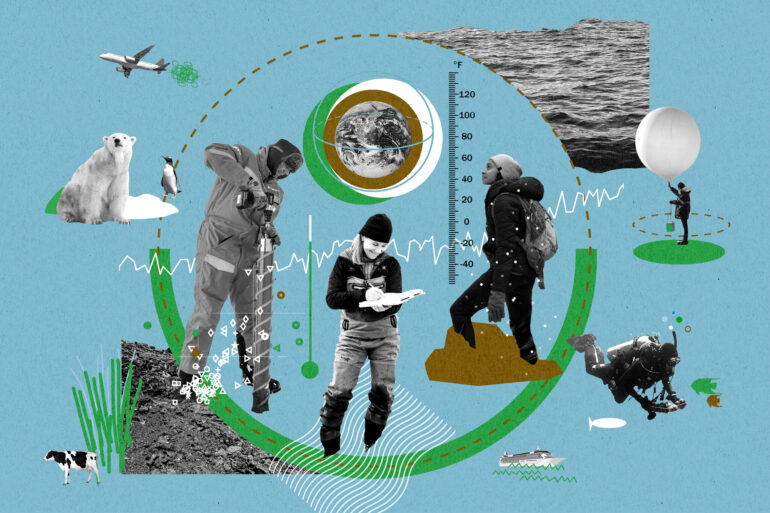
Curious Kids is a series for children of all ages. If you have a question you’d like an expert to answer, send it to [email protected].
My parents said the planet is getting too hot for people to live here. They called it climate change. What does that mean? – Joseph, age 12, Boise, Idaho
Many countries have seen extremely hot weather lately, but in most of the inhabited world, it’s never going to get “too hot for people to live here,” especially in relatively dry climates.
When it’s hot outside in dry places, most of the time our bodies can cool off by evaporating water and heat from our skin as sweat.
However, there are places where it occasionally gets dangerously hot and humid, especially where hot deserts are right next to the warm ocean. When the air is humid, sweat doesn’t evaporate as quickly, so sweating doesn’t cool us the way it does in drier environments.
In parts of the Middle East, Pakistan and India, summer heat waves can combine with humid air that blows in off the sea, and this combination can be truly deadly. Hundreds of millions of people live in those regions, most without access to indoor air conditioning.

With high temperatures over 120 degrees Fahrenheit (49 Celsius) in Delhi, India, in May 2024, kids chased after trucks that were spraying mist.
Arun Sankar/AFP via Getty Images
Scientists like me use a “wet bulb thermometer” to get a better sense of this risk. A wet bulb thermometer allows water to evaporate by blowing ambient air over a damp cloth. If the wet bulb temperature is over 95 F (35 C), and even at lower levels, the human body won’t be able to let enough heat out. Prolonged exposure to such combined heat and humidity can be fatal.
During a severe heat wave in 2023, wet bulb temperatures were very high over the lower Mississippi Valley, though they didn’t reach fatal levels. In Delhi, India, where air temperatures were over 120 degree Fahrenheit (49 Celsius) for several days in May 2024, the wet bulb temperatures came close, and several people died from suspected heatstroke in the hot and humid weather. In conditions like that, everyone has to take precautions.
Is it climate change?
When people burn carbon – whether it’s coal in a power plant or gasoline in a vehicle – it creates carbon dioxide (CO2). This invisible gas builds up in the atmosphere and traps the Sun’s warmth near the Earth’s surface.
The result is what we mean by “climate change.”
Every bit of coal, oil or gas that ever gets burned adds a little bit more to the temperature. As temperatures rise, dangerously hot and humid weather has begun to spread to more places.
Areas of the U.S. Gulf Coast in Louisiana and Texas are increasingly at risk of dangerous hot and humid conditions in summer, as are heavily irrigated areas of the desert Southwest where water sprayed over farm fields adds…



